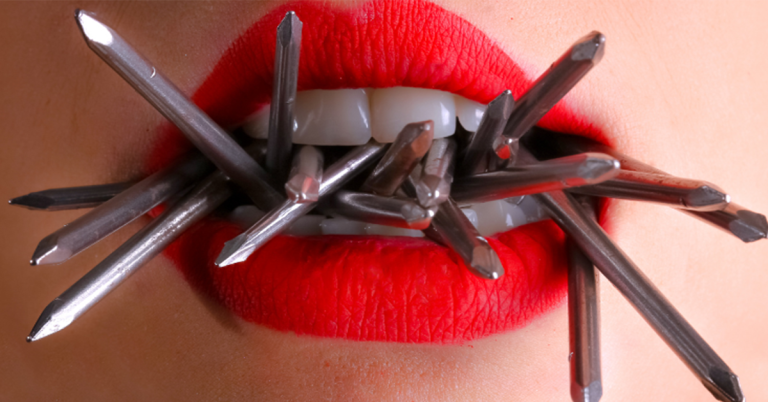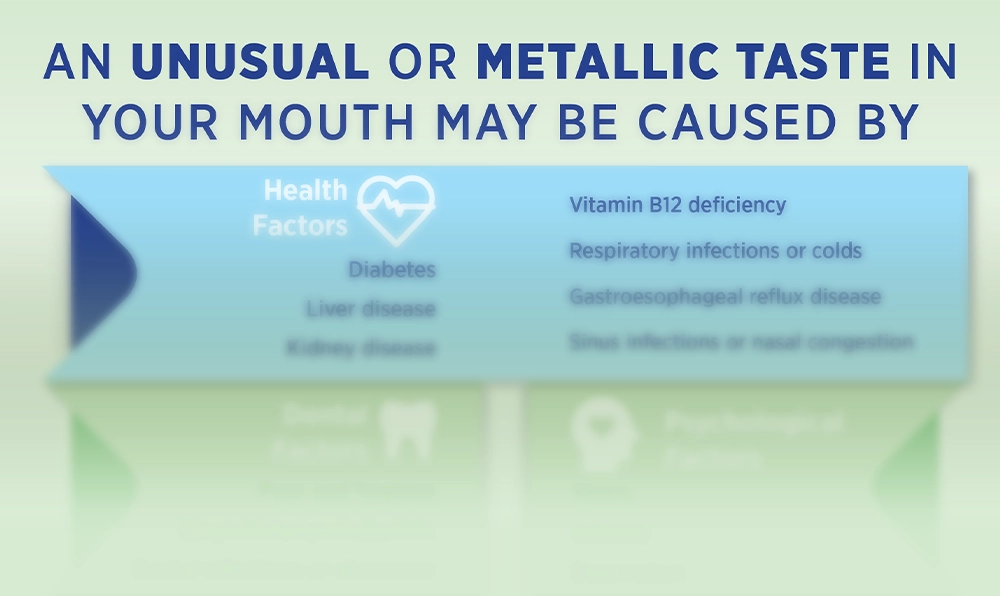

Have you ever experienced that peculiar sensation when you suddenly notice a metallic taste in your mouth? It’s not the most pleasant feeling, is it? You may be wondering what could be causing this unusual taste and whether it’s something to be concerned about.
Well, fear not! In this article, we will delve into the various reasons why your mouth may have a metallic taste and explore potential solutions to alleviate this uncomfortable sensation.
There are several factors that can contribute to the development of a metallic taste in your mouth. Let’s delve into a few common culprits:
One common culprit behind a metallic taste in the mouth is certain medications or supplements. Numerous drugs, such as antibiotics, antihistamines, and even multivitamins, can lead to this unwanted metallic sensation.
This occurs because these substances can interact with your taste buds, altering your perception of taste. If you suspect that your medication might be causing the metallic taste, it’s essential to consult your healthcare provider for guidance.
Dental problems can also contribute to the presence of a metallic taste in your mouth. Conditions such as gum disease, cavities, or oral infections can release metallic-tasting substances, causing an unpleasant flavor.
Moreover, poor oral hygiene, including neglecting to brush and floss regularly, can exacerbate these issues. Therefore, maintaining proper dental care is crucial not only for your overall oral health but also for combating that metallic taste.
Read: Dental Procedures And Metallic Taste
Believe it or not, imbalances in your nutritional intake can affect your taste buds and lead to a metallic taste. Deficiencies in vitamins and minerals, particularly zinc, copper, and vitamin B12, can cause alterations in your taste perception. Ensuring a well-balanced diet with a variety of fruits, vegetables, and lean proteins can help minimize the likelihood of experiencing this metallic sensation.
Acid reflux and gastroesophageal reflux disease (GERD) are conditions where stomach acid flows back into the esophagus. Besides causing heartburn and indigestion, acid reflux can sometimes result in a metallic taste.
The acid from the stomach may reach your mouth, leaving that unpleasant metallic flavor behind. Managing acid reflux through lifestyle changes and, if necessary, medication can help alleviate this taste-related symptom.
Expecting mothers often experience various changes in their bodies and a metallic taste in the mouth can be one of them. This phenomenon, known as dysgeusia, is thought to occur due to hormonal changes during pregnancy. While it may be bothersome, it usually resolves after childbirth. However, if the metallic taste becomes severe or persists, it’s advisable to consult a healthcare professional.
Now that we’ve explored some potential causes of a metallic taste in your mouth, let’s discuss ways to alleviate this sensation. One effective solution is using MetaQil oral rinse. This specially formulated rinse is designed to neutralize the metallic taste and provide you with a refreshed palate.
MetaQil oral rinse contains natural ingredients that help restore your taste buds to their normal function. By swishing with MetaQil for about 30 seconds, you can experience relief from the metallic taste and enjoy your meals without any unwanted flavors. It is easy to use, convenient and can be a game-changer for anyone struggling with this unpleasant sensation.
In addition to using MetaQil, implementing good oral hygiene practices is essential. Brushing your teeth at least twice a day with fluoride toothpaste, flossing daily, and regularly visiting your dentist can help prevent dental issues that contribute to the metallic taste.
Moreover, if you suspect your medications are causing the metallic taste, consult your healthcare provider. They may be able to recommend alternative medications or adjust your dosage to minimize this side effect.
Lastly, maintaining a balanced diet rich in essential nutrients can also contribute to alleviating the metallic taste. Ensure you consume foods high in zinc, copper, and vitamin B12 or consider supplements under medical guidance.
